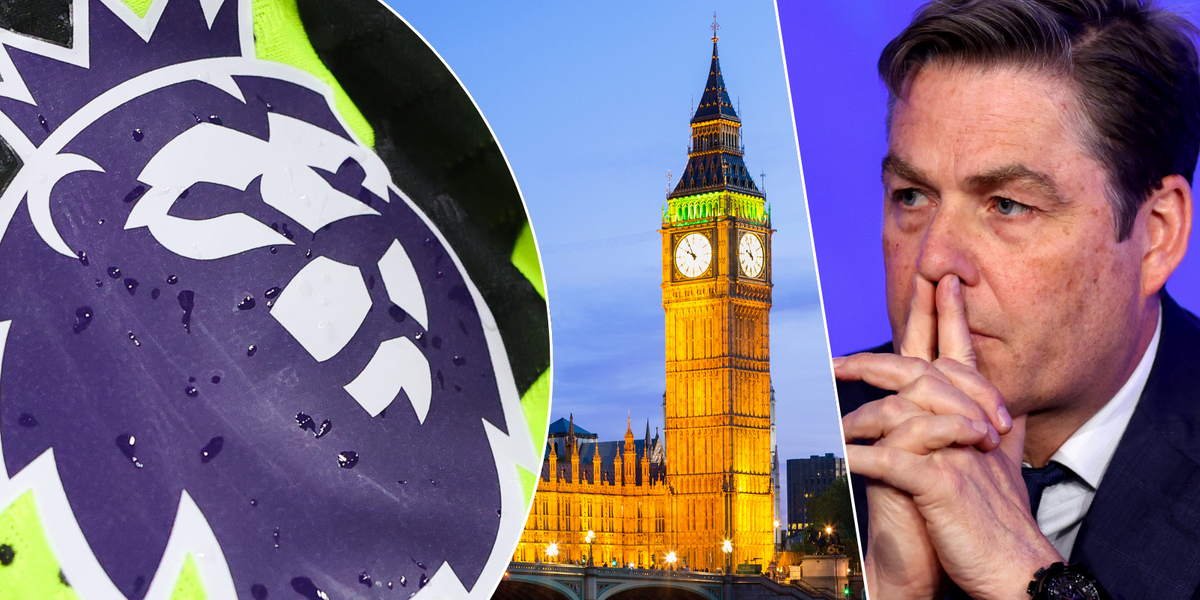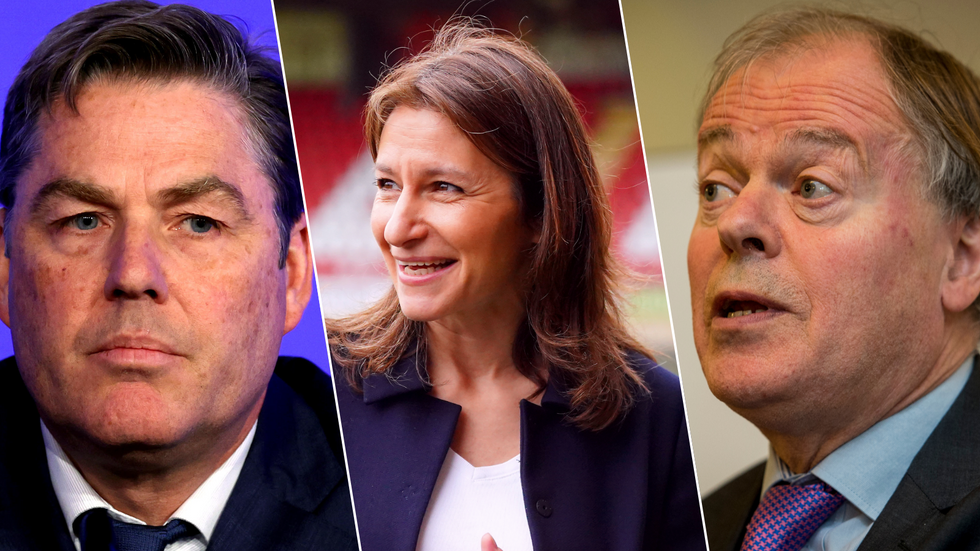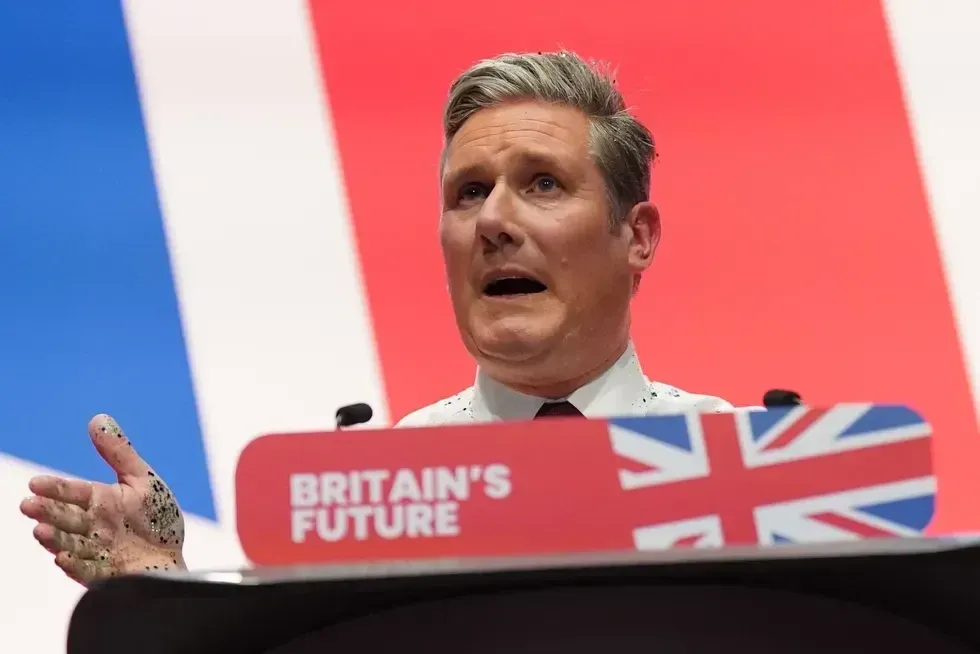


The Premier League has been blasted as “undemocratic” and “out of touch” with football fans after it emerged league execs had apparently been lobbying politicians on the introduction of an independent regulator for the sport.
The Independent Football Regulator (IFR), which looks set to be implemented if and when the Department for Culture, Media and Sport-sponsored Football Governance Bill is passed, seeks to safeguard club and league finances and “heritage” throughout “English men’s elite football”.
Clive Betts, MP for Sheffield South, praised the IFR, which he told GB News would give fans a “real say” and a “stronger voice” in cracking down on out-of-control club owners – some of which, he added, were “awful”.
He also talked up its “heritage” focus – one of the Bill’s three primary objectives established by the 2021 Fan-Led Review of Football Governance is to “safeguard the traditional features of English football” through legal requirements for fan consultations on changes to club crests and home shirt colours.
Betts said the IFR was backed by “real fan concerns” and would stop “owners coming in and changing 100 years of club history” like controversial rebranding attempts by the owners of Hull City and Cardiff City in the past.
Premier League CEO Richard Masters had claimed mixing football and politics was a risk – just weeks before hosting a drinks reception at the House of Lords
Getty/PA
The Premier League’s CEO, Richard Masters, had said in February: “It is a risk to bring politics and lobbying into football, especially when there are also genuine concerns regarding how truly independent the regulator will be,” in an article for the Times.
But just a day prior, the Premier League had taken out ad space in Politico, a publication which prides itself on “inform[ing] the powerful, particularly those who have a political, professional or financial stake in politics and policy”.
The April 8 edition of Politico’s “London Playbook”, a newsletter serving a British political audience, contains a paid-for warning from the league between reports on the UK, France and Ukraine.
Despite Masters’s insistence that mixing football and lobbying was a risk, the ad warned Politico readers that “the UK will soon become the first major country to regulate football”, and called for a need to “guard against unintended consequences that would put English football’s success at risk”.
WESTMINSTER TAKES ON FOOTBALL: READ MORE

Richard Masters (left) warned against “unintended consequences” of Lucy Frazer’s (centre) Bill… but Clive Betts (right) said fans were “supportive”
PA
Then, a few weeks later, Masters – alongside National League general manager Mark Ives – told attendees at a House of Lords drinks reception that legislation had been “written loosely” and warned a regulator could “choke off” foreign investment in English football, which he claimed was the reason for its success.
While analysis by the i Newspaper revealed the Premier League has been spending more than £5,000 per month on “gifts” including sports and concert tickets to MPs including Sir Keir Starmer, Michael Gove and Suella Braverman in 2024.
None of the MPs named by the i have spoken publicly against the Bill, which currently stands at the committee stage in the House of Commons – while a Premier League spokesperson said the “programme of stakeholder engagement” was “normal practice”.
While Clive Betts told GB News “most fans were supportive” of the introduction of an independent regulator, fan groups have claimed that supporters weren’t aware of the details and had not been properly consulted.
Speaking to GB News, John Hird from Newcastle United fan group NUFC Against Sportswashing (NUFCFAS), said it was “no surprise” the Premier League was raising concerns over introduction of the IFR and described those involved in lobbying as “totally out of touch”.
He said the Premier League had been “undemocratic” since its inception, pointing to its controversial 1992 breakaway from the English Football League – which, at the time, was labelled “absolutely appalling” by then-MP Bryan Davies, now Baron Davies of Oldham.
Hird also slammed the Football Supporters’ Association, which had given evidence during the 2021 Fan-Led Review of Football Governance, for “not taking up” fans’ issues.
Football fans “have good hearts”, Hird added, and he called on fans to unite – like they did against the European Super League – to affect decisions being made at the highest levels of the game.
When asked whether the Premier League’s campaigning on the regulator was going behind fans’ backs, Clive Betts told GB News the PL had “lost that argument a long time ago” – and now the Football Governance Bill had made it to Parliament, “they’d lost that one as well”.
With a general election looming, Hird called on Labour leader Starmer to listen to “grassroots” football fans, rather than the Premier League “if he really is a football fan himself” – but Betts noted that the Bill, if passed, would be enshrined in law before any potential Labour victory.
As he had in the Commons, Clive Betts took aim at football club owners “who promise the world then walk away” and praised the Bill’s efforts to target malign individuals – but it has seen criticism from human rights groups and fan associations for not taking enough action on state-owned clubs.
A letter to the government from campaign groups FairSquare and ALQST for Human Rights, and Newcastle United fan group NUFCFAS, had slammed a clause in the Football Governance Bill which sets out powers to make decisions on owners’ suitability.

Hird called on Labour leader Keir Starmer to listen to “grassroots” football fans rather than the Premier League
PA
The clause said such decisions “must have regard to the foreign and trade policy objectives” of the UK Government, but the letter claimed it would “politicise the independent regulator and leave English clubs inextricably entwined with the UK’s foreign policy”.
While Betts conceded the issue of state ownership needed “more investigation”, he was keen to raise concerns over a hypothetical Chinese state buyout of an English club – if China were to purchase one, it would present a “very interesting” problem, he added.
A Premier League spokesperson told GB News: “The Premier League runs a programme of stakeholder engagement with a broad range of individuals including MPs and officials.
“Like all industries, including many football organisations, this is normal practice and used as an opportunity to discuss a wide range of topics and issues that affect both our areas of work.”
A Department for Culture, Media and Sport spokesperson told GB News: “The IFR will be set up as a new public body to ensure its full operational independence from both the football authorities and Government. As we have said throughout, it is not for a football regulator to set the Government’s foreign policy.
“It will be a light touch regulator with clear powers to intervene where there are issues around financial sustainability, but won’t burden well-run clubs with unnecessary regulation.”
GB News has approached the Football Supporters’ Association for comment.